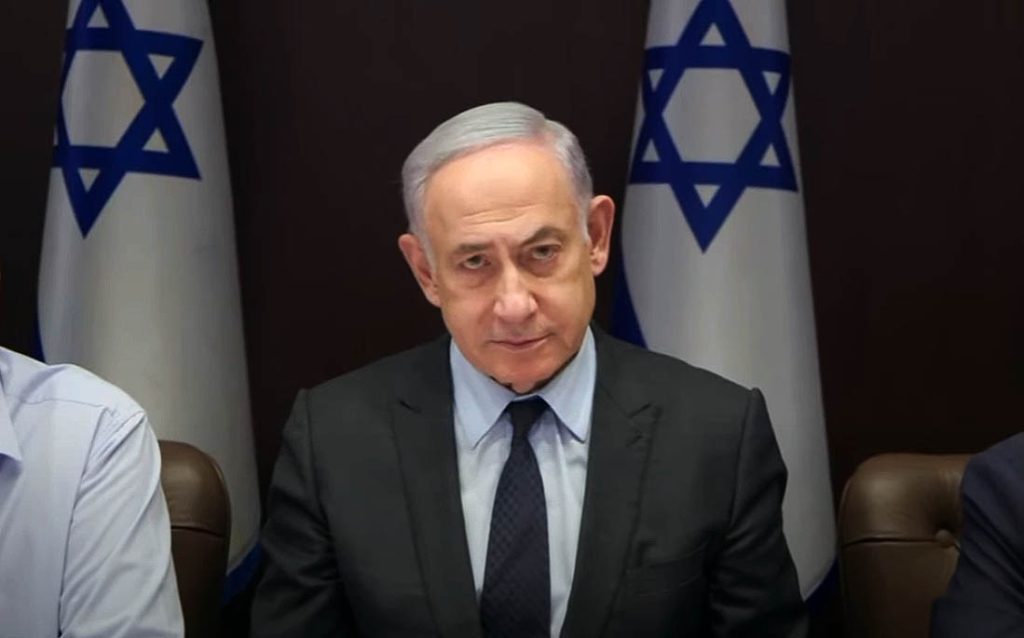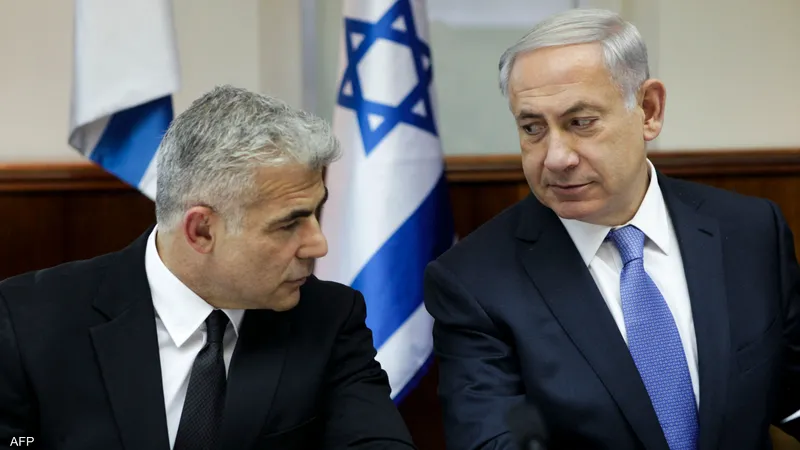FALCON POWERS – Political and media circles in Israel agree that the recent attack on Iran was “very weak,” “feeble,” and “trivial,” with the sole aim being political for Netanyahu—nothing more.
While the Israeli propaganda machine seeks to exaggerate the scale of the aggression against Iran that occurred late Friday into Saturday, reactions from political and media circles within the occupying entity confirm that the aggression was weak and, importantly, did not meet the threats issued by Benjamin Netanyahu and Defense Minister Yoav Gallant following the “Honest Promise 2” operation on October 1.
Israeli media reported that sharp criticisms are emerging from within the political sphere, including both right and left factions, regarding what was said to be the targeting of several sites in Iran. Among these critics is opposition leader Yair Lapid, who was quoted by the Israeli newspaper Maariv as saying, “We should have made Iran pay a heavy price,” arguing that Israel’s decision to neutralize Iranian economic and strategic targets in the attack was “wrong,” and that it “did not attack with sufficient force or importance.” Lapid added that “failing to strike Iranian oil tanks is a grave error. Iran has paralyzed Israel by launching missiles at us.”

Likewise, Avigdor Lieberman, head of the Yisrael Beiteinu party, lamented that “unfortunately, instead of exacting a real price, the government is once again content with superficial appearances and public relations.” Israeli media considered the “summary of the damages after the Israeli attack on Iran to be trivial,” with others stating, “In the Arab world, they are laughing at us, and the truth is that the days will tell us that.”
Additionally, Likud Knesset member Tali Gottlieb tweeted on her X account that “not attacking Iranian nuclear facilities will be a lament for generations.”
Why was the Israeli attack so weak? What does this have to do with Netanyahu’s continued rule? Israeli journalist Rami Yitzhar, a former high-ranking officer in the military police of the occupation army, addressed these questions, commenting that “the next message from Tel Aviv is simple and clear: We are done. The round is over.”
Yitzhar, who previously worked as a broadcaster for Israeli radio and the army radio station, described the attack, which he termed “very small and feeble,” as a political trick by Netanyahu to show his supporters that he did something against Tehran. In this context, Yitzhar referred to the “bombastic and grandiose” statement by the spokesperson for the occupation army, Daniel Hagari, regarding the attack, considering it “somewhat filled with elements of false self-praise.” He noted that Hagari’s body language indicated he understood it was merely a show, stating, “The only goal of this action was political: to show Netanyahu’s voters that we did something, and that is all.”
The former military police officer reiterated Lapid’s assertion that the attack “achieved no strategic objectives, did not hit nuclear sites, nor the military bases of the Revolutionary Guard, nor oil facilities, nor ports—nothing that could cause real damage to Iran.”
The Israeli occupation had announced that it targeted military objectives “in a focused manner” in Iran late Friday into Saturday, attempting to strike three bases in Tehran province; however, Iranian air defenses repelled the attack.
A correspondent for Al-Mayadeen noted that all reports in Israeli media regarding attacks on Imam Khomeini and Mehrabad airports and oil facilities are false. The Iranian military announced the martyrdom of two air defense personnel while repelling the Israeli aggression, indicating that “some points suffered limited damage due to the aggression.”


